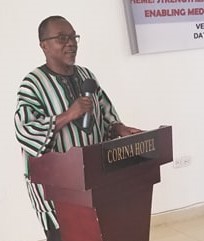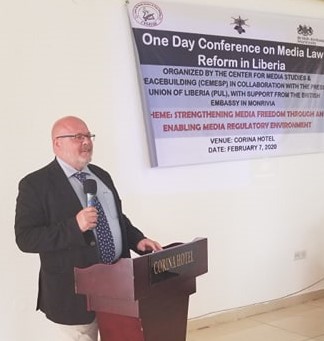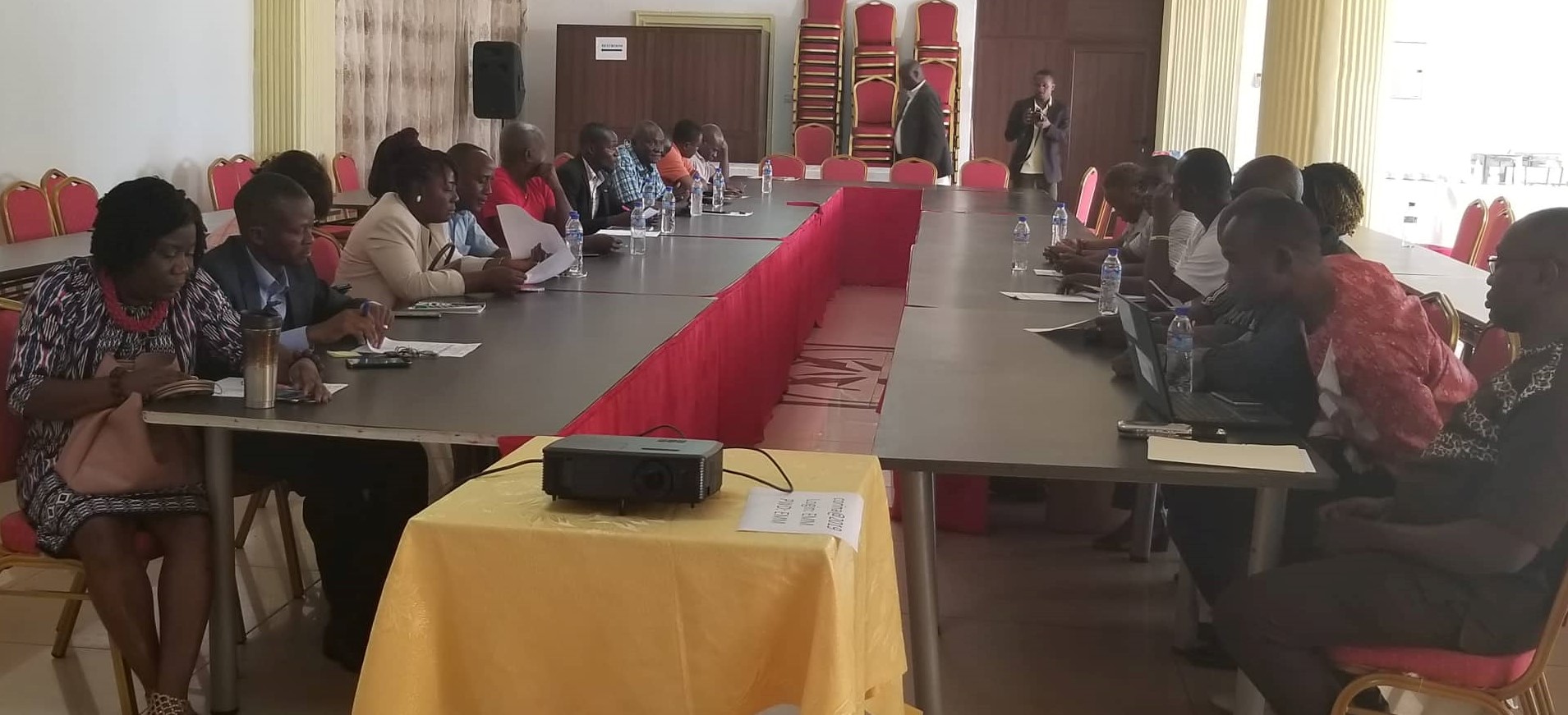Monrovia – Media stakeholders at a conference in Monrovia have constituted a technical working Group that is charged with the responsibility of drafting a bill for the establishment of an independent Media Regulatory Commission, a press release from the Center for Media Studies and Peacebuilding (CEMESP) said at the weekend.
Already, the stakeholders resolved to constitute a nine member technical working group charged with the responsibility to start the process of drafting the bill in two months’ time, which will be validated at a wider forum of stakeholders and submitted for legislative enactment.
This development is by courtesy of British Embassy in Monrovia support to the Center for Media Studies and Peacebuilding in the implementation of a project dubbed: Strengthening Media Freedom through an enabling Media Regulatory Environment.
Keynote Speaker Senator, Commany B. Wesseh used the occasion to pledge his support for the initiative and described himself as a champion of the proposed bill to be enacted into law. He argued that with the passage of the law the issue of court litigations that constrain the work of journalists will be mitigated.

He Said journalists have to prepare themselves for self-protection, noting that they should take advantage of the immense goodwill in the legislature and come out with a draft bill that he will personally present and influence his colleagues to support at both houses.

The British Ambassador to Liberia David Belgrove extolled the concept of free media in promoting accountability and scrutiny of public officials as a core ingredient of democracy, noting that evidence abound that countries with free media have risen to enlightenment and growth.
He cited among such countries that has produced thirteen Nobel laureate and has a strong economy and stability because the media environment is free. He alluded to the point of view of Nelson Mandela when he referred to media as mirror through which we see ourselves -both blemish and good qualities. He said most corrupt countries have low free media ratings; adding that media freedom behooves content accuracy, truth telling, nurturing and nourishing good ideas.
Ambassador Belgrove said the suffocating tools of censorship of media must therefore be negated. He used the occasion to announce the Global Media Defense Fund that has been set by the British Government.
Making a remark, the President of West Africa Journalist Association Peter Quaqua said the fact that media stakeholders were gathered at Corina Hotel for reform dialogue means that they have failed in the experimentation of self regulation.
He expressed doubt about the possibility of the proposed media regulatory commission assuming the responsibility of spectrum allocation to radio and television stations; noting that it falls under the ambit of the Liberia Telecommuncations Authority (LTA). He said the drafting process of the proposed bill must also consider the role of the Ministry of Information, Culture and Tourism with sweeping powers to be in harmony with the set up of a statutory body as the media regulatory commission.
He concluded on the point that journalist should not be under the illusion that all problems will be resolve er with the independent media commission law is passed, arguing that journalists must recommit to self-accountability.
Press union of Liberia President Charles Cuffey said they are very supportive of this initiative and thanked the British Government for standing strong for media freedom.
He said with the success in having the K. Abdullai Kamara press freedom Act passed, journalists should not be complacent but must work on the proposed framework that will have binding effect in making up for the challenges of compliance that the existing media commission and Grievance and Ethics committee had been grappling with.
Other speakers that pledged goodwill to the process included the Chairman of the Law Reform Commission Boakai Kanneh who questioned the parameters on which the media commission will be set up in terms who and what will they be regulating.
Earlier the Executive Director of Center for Media studies and Peacebuilding, Malcolm Joseph traced the media reform process from 2004 using multi stakeholders approach that must be employed this time around. He said the media law reform conference is the climax of the British Embassy supported project strengthening media freedom through a regulatory framework and implored fellow journalists to rise up to the occasion in advance media rights and responsibility.
Other speakers who gave support to the process included a representative from Internews Jefferson Masssah and the Presidential Press Secretary, Issac Solo Kelgbeh.
The event culminated into plenary discussion that was guided by media expert, Patmellia Doe Paivey and a range of suggestions were captured to constitute the roadmap of consultation, media marketing and lobby to have the Independent Media Commission set up based on hybrid of other models in Africa.

